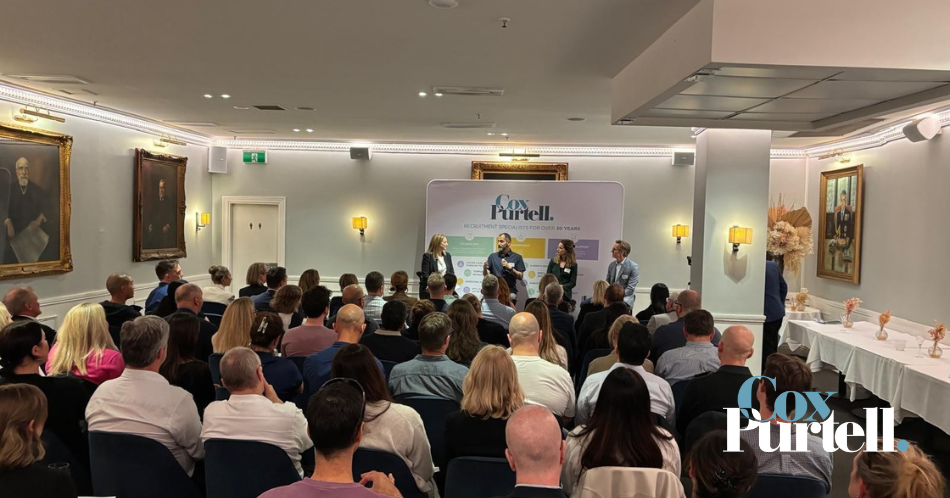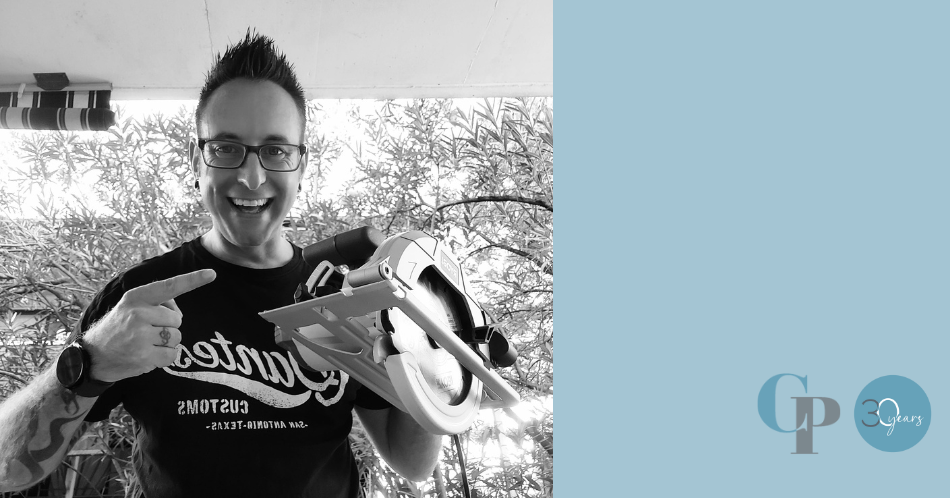FAQS & RESOURCES
CANDIDATE FAQS
Permanent Candidates
Temporary Candidates
CANDIDATE RESOURCES
Our candidate resource centre is your one-stop shop for everything you need to help land your dream job! Just click the links below for our helpful guides.
RESUMES
HELPFUL BLOGS TO AID YOUR JOB SEARCH

When it comes to recruitment, extending an offer is only half the battle. Getting it accepted? That’s where the real magic happens. At Cox Purtell, we’ve refined the process from first brief to final handshake. The result? A 100% offer acceptance rate . That’s not luck – that’s strategy. It's built on a combination of data, empathy, and experience, ensuring that both candidates and employers reach the offer stage fully aligned. So, how do we do it? 1. Nailing Salary Expectations Misalignment on salary is one of the most common reasons offers fall through. That’s why we put salary discussions at the centre of our recruitment strategy from the very beginning. Rather than make assumptions, we have open, honest conversations with both candidates and employers. We help each party understand what’s reasonable, competitive, and most importantly – fair. The numbers speak for themselves: 96% of our clients are satisfied with how we support salary expectations. We’ve helped 100% of our candidates secure offers they’re happy with. We guide both sides through any negotiation, ensuring alignment on salary, benefits, and progression opportunities. This means that when an offer is made, it's already been internally accepted – emotionally and practically. 2. Transparent Communication Throughout Trust is built with consistency, and consistency comes from great communication. We believe in radical transparency – keeping both candidates and clients informed every step of the way. From application to offer, we provide clear timelines, honest feedback, and continuous updates. 98% satisfaction in communication and transparency. 98% satisfaction with regular updates. When people are well-informed, they feel confident in the process – and confident people say yes. 3. Precision in Matching A good hire isn’t just about technical skills – it’s about fit. We invest time in deeply understanding what both sides want. For candidates, we look at more than just the resume. We explore motivations, preferred work styles, values, and long-term career goals. For employers, we dive into the team culture, role evolution, and business direction. 97% of our clients believe the candidate was suitable for the role. 95% felt the role was suitable for their organisational needs. It’s this two-way understanding that leads to matches that last – and offers that get accepted. 4. Cultural Alignment Culture fit is the glue that holds successful placements together. Skills can be taught, but values and working style are what make someone stay. We ensure both sides walk into the hiring process with a clear understanding of each other's cultures. 98% of clients felt the candidate was a good culture fit. 93% of candidates said the company culture fit them. This mutual understanding turns an offer into a long-term opportunity – and makes the “yes” a no-brainer. How We Know It Works Our performance data comes from Recruiter Insider, a third-party platform that independently collects feedback from both clients and candidates throughout the recruitment journey. This allows us to measure the impact of our process objectively – and continuously improve it. The Result? Long-Term Success We don’t just stop at getting offers accepted – we follow up to see how our placements are performing months down the track. After 12 months, 100% of hires are still considered beneficial, long-term members of the team. Candidate experience and skills are meeting or exceeding expectations, with 100% development noted at the 12-month mark. When recruitment is done right, everyone wins – today, tomorrow, and well into the future. Ready to Hire with Confidence? Our process is built for outcomes. With a 100% offer acceptance rate and long-term retention to match, we don’t just fill roles – we build careers, teams, and trust. Let’s talk about how we can deliver the same results for you.

Uncovering Leadership's Commitment to High Performance: A Candidate's Guide Off the back of Cox Purtell's Insight Session on "Culture That Fuels High-Performing Teams," this week, I've been reflecting on a crucial aspect of the job search: how can candidates, during the interview process, truly gauge a company's leadership commitment to fostering a high-performance environment? After all, an interview is a two-way process, and you want to find out about your future employer, as much as they are trying to find out about you! It's one thing for a company to talk about high performance, but it's another for its leaders to actively cultivate the culture and systems that make it a reality. The recent panel, featuring insights from Karl Treacher (The Culture Institute of Australia), Rebecca Moulynox (Great Place to Work), Tica Masuku (Spaceful), and Ben Meneses-Sosa (Senior Engineering Leader), underscored that high performance isn't just about hitting KPIs. It's about sustainable, people-centric success built on a foundation of trust and psychological safety. As Ben Meneses-Sosa aptly put it, "It's not about debugging code, it's about debugging teams." This resonates deeply – technical outcomes are intrinsically linked to non-technical enablers like purpose, safety, and clear values. So, as a candidate, how do you dig deeper than surface-level statements during an interview? Here are a few thoughts on what to explore: 1. Probe for Specific Examples of Leadership in Action: Instead of asking generic questions like "Do you have a high-performance culture?", try to elicit concrete examples. Consider questions like: "Can you share an example of how leadership has supported a team through a particularly challenging project to ensure both wellbeing and successful outcomes?" "How does leadership actively foster psychological safety, and can you give an instance where this was crucial for innovation or problem-solving?" “Culture tends to reflect the character and style of its leaders. How would you describe the leadership style here, and how does it translate into daily team interactions and decision-making?" Listen for responses that go beyond buzzwords. Are they talking about processes, or are they sharing stories that demonstrate genuine commitment? Karl Treacher highlighted that "culture health begins with relational trust." Look for evidence of leaders building that trust through consistent, inclusive, and curious behaviours. 2. Understand How Performance is Defined and Supported: High performance needs to be more than a slogan; it needs to be embedded in how work is done and how people are supported. Ask questions that reveal this: "Beyond individual KPIs, how does the company measure and recognize team performance and collaboration?" “How does leadership here empower employees and teams to take ownership and initiative?" "What kind of coaching or development opportunities are in place to help individuals and teams continuously improve and perform at their best?" Inquire about how the company invests in its culture and its people. Is it a tick-box exercise, or is it a strategic priority? 3. Assess the Environment – Physical and Cultural: Tica Masuku’s insights on "topophilia" – the way people feel about a place – were fascinating. While you might not get a full office tour during an initial interview, you can still ask about the work environment: "How does the company approach creating a work environment (whether physical, virtual, or hybrid) that supports collaboration and focused work?" "How are values communicated and reinforced within teams on a day-to-day basis?" Ben Meneses-Sosa mentioned ubiquitous communication of values, even down to posters in bathroom stalls, and peer-nominated awards – these are tangible signs. Remember, as Karl Treacher warned, "Every reputation scandal starts in culture." A leadership team that is serious about high performance is also serious about building a healthy, ethical, and supportive culture. The Bottom Line for Candidates: Your interview process is a two-way street. It's as much about you assessing the company and its leadership as it is about them assessing you. By asking thoughtful, specific questions, you can gain valuable insights into whether a company’s leadership truly champions a high-performance culture where you can thrive. Look for leaders who are not just talking the talk but are actively walking the walk, fostering trust, psychological safety, and a genuine commitment to their people's success. After all, a culture where people thrive is the bedrock of sustainable high performance.

It’s not all chocolate and carrots - there’s some real wisdom in those paws. While Easter might be best known for hot cross buns, chocolate eggs, and long weekends, there’s actually a surprising amount we can learn from the Easter Bunny - especially when it comes to job hunting. Here’s what this fluffy seasonal icon can teach us about landing your next role: 🥚 Don’t put all your eggs in one basket You’ve heard it before... and the Easter Bunny would agree. When you’re job hunting, it’s important to explore a few different opportunities rather than pinning all your hopes on one. You never know which door (or egg) will crack open the right career path. 🔍 The best opportunities are often hidden Much like a cleverly hidden chocolate egg, the perfect role isn’t always sitting right in front of you. Some of the best jobs come through networking, working with a recruiter, or applying a little creative thinking. If you’re not finding what you want on page one of the job boards... dig a little deeper! 📍Know where you’re going before you hop The Easter Bunny doesn’t just start bouncing with no plan, and neither should you. Have a clear idea of what you’re looking for: the type of role, company culture, location, flexibility, and growth potential. A little direction can help you hop in the right direction. 🧺 Preparation = success Behind every successful Easter egg hunt is someone who did a little prep. The same goes for job hunting. Tailor your CV, clean up your LinkedIn, and have a solid pitch ready for interviews. The more prepared you are, the smoother the hunt. 🤝 Help goes a long way Even the Easter Bunny gets help from their friends. Don’t be afraid to ask for support - whether it’s from a recruiter, a mentor, or a friend giving your CV a once-over. Job hunting is easier when you’re not doing it alone. So, what’s in your basket this Easter? Whether you’re actively looking or just thinking about your next move, now’s a great time to check in with your career goals. And if you need a hand? That’s what we’re here for. Happy Easter - and happy job hunting!

Hiring the right people is surprisingly similar to running a game of Dungeons & Dragons. Stay with me... I've never actually been a Dungeon Master myself, but through many hours listening to my son passionately recount his latest campaign - and as a youngster consuming the books as well as the computer games -I've realised there's something strikingly familiar about assembling a successful party and recruiting a great team. A Dungeon Master (DM, for those still blissfully unaware) is essentially a storyteller, guide, and occasional tormentor of players. Their job isn't merely rolling dice and unleashing hordes of goblins - though my son assures me this is often the highlight - but carefully assembling and guiding the right mix of adventurers. Think about it: You always want a Wizard (think your visionary tech lead). They're essential for innovative solutions, but too many Wizards and you'll have endless ideas but little organisation. You absolutely need a Barbarian - bold, fearless, and the first to dive headfirst into a challenge (like tackling that daunting client pitch). Fantastic in emergencies, but maybe not the best with delicate matters like budgets or sensitive negotiations. The Rogue? Smart, adaptable, resourceful, and perhaps a touch ethically flexible - perfect for Sales or Business Development, as long as you keep an eye on your valuables. Then there's the Cleric: supportive, empathetic, and crucial for maintaining morale. They keep everyone moving forward, usually powered by coffee and endless patience. Here are four lessons I've picked up from recruitment, inspired by my indirect adventures in D&D: 1. Expect the unexpected Prospective hires rarely follow your carefully scripted interview plans (much like adventurers ignoring the DM's meticulously crafted plot). Great recruiters, like great DMs, learn to embrace unpredictability, adapt swiftly, and think creatively on their feet. 2. Diversity Is Crucial An entire party of identical adventurers is doomed from the start. Similarly, recruiting clones might feel safe but leads to shared blind spots. Diverse teams are resilient, innovative, and cover each other's weaknesses - exactly what your business needs. 3. Communication Matters Vague instructions like "We want a Ninja Rockstar Developer Wizard" leave everyone confused. Specificity and clarity are essential. Clear, concise, and precise communication prevents misunderstandings, wasted effort, and unnecessary frustration. 4. Empathy Is Your Secret Weapon Even mighty adventurers need appreciation, and prospective hires are no different. Empathy in recruitment creates positive experiences, improves employer branding, and builds genuine relationships with those you hire. Real-World Application Consider this scenario: your business urgently needs a senior developer (the Wizard). You have two strong prospective hires: prospective hires A: Highly skilled individually but known to clash with teammates. prospective hires B: Slightly less skilled individually but known for elevating the team's overall performance. An insightful recruiter knows prospective hires B often leads to better long-term outcomes. Individual brilliance is important, but synergy and teamwork often make the difference between success and failure. So next time you're faced with a recruitment challenge, channel your inner Dungeon Master - whether you've rolled the dice yourself or, like me, learned the ropes second-hand. May your next hire roll a natural 20. And if assembling your perfect party feels like a quest too daunting to undertake alone, send a raven (or, you know, give me a call). Every Dungeon Master could use a skilled co-DM or a seasoned adventurer-for-hire to expertly navigate the recruitment campaign and ensure your party's success.

I'll kick this off by saying that I love DIY as much as the next person. The thrill of learning a new skill, the satisfaction of creating something from scratch, and the occasional moment of stepping back, admiring my handiwork, and thinking "Not bad, mate. Not bad at all." That being said, as a weekend warrior with power tools, I’ve learned a few hard truths. DIY is rarely the cheapest, fastest, or most efficient way to get things done. Sure, I could probably build my own custom cabinetry, but by the time I’ve bought the materials, watched 17 YouTube tutorials, made a few (costly) mistakes, and finally finished, I might as well have hired a professional and saved myself the blood, sweat, and swearing. And funnily enough, the same principle applies to recruitment. If the idea of writing engaging job ads (that don’t sound like a corporate snooze fest), navigating the labyrinth of digital job platforms, crafting Boolean search strings that resemble an alien language, sorting through an ocean of résumés, screening candidates, handling interviews, and gracefully managing salary negotiations excites you - then congratulations, DIY recruitment will be your new favourite hobby! But if you’d rather focus on actually growing your business instead of getting lost in the recruitment trenches, there’s a better way. At Cox Purtell, we eat, sleep, and breathe recruitment so that you don’t have to. We’ve got the networks, the expertise, and the finesse to find the right people faster - without the expensive mistakes, the hiring missteps, or the time drain. So, if you love recruitment as much as I love assembling flat-pack furniture (read: not that much), let’s have a chat. I promise you’ll save yourself a whole lot of time, money, and frustration. #DIYRecruitment #RecruitmentFails #HireSmart

The things you should consider before you look for a new job. While I am in the business of getting people new jobs I also firstly explore the motivation and reason for someone seeking a change. Humans are emotionally driven and often look to fix or change things, wanting to explore a new job can often be driven by a reaction to something that often has nothing to do with your job. It’s not easy getting a new job and people often go into this process without proper consideration. Leaving your job and starting a new role isn’t always easy. I often advise people on the below to understand the why. Is the decision to look elsewhere based on assumptions? Often this can be: I don’t think they’d give me any more money, I want a little bit of flexibility, I don’t think there is any progression. This can be based on a colleague’s experience rather than their own. I would encourage you to explore these fully rather than make an assumption. If the main reason you want to find a new place to work so you can have more flexibility to take every Weds off from 3pm to play cricket during the season, just ask. Is a move purely money driven? Almost everyone wants a pay increase with a move and rightly so. A lot of people don’t explore this with their current employer as they think it will be pointless or awkward or both. It’s much more costly to hire your replacement than increase your salary when you take into consideration time and resources spent. “It's me, hi, I'm the problem, it's me”. Have you disengaged from your job because of something else? Often, because we spend so much time at work, it can bare the brunt of our dissatisfaction. Is your job really the problem? People often slide into a self-perpetuating cycle of negativity at work, if you feel you are hard done by, you will only see and interpret events that support that. Are you going through a difficult life experience? Of course, this will affect your job and job satisfaction, but is it really fair to attribute this to something outside of your control? You can only control what you can control, It’s ok to have time off work or not be able to fully commit to your role sometimes; you are dealing with a serious life event, and work will not always be your priority. If in doubt, apply anyway- well, yes and no. Depending on the skillset of your role, don’t apply for a role as Head of Finance if you have 1 year’s experience in Accounts Payable. Many job seekers think it’s a numbers game and if you want to change to a new career you have to just apply for the job you want. But why would you waste your time putting in an application for a role you have less than 10% of the key, required experience for? I can only imagine it would be quite demoralising and time-consuming to keep applying and keep getting rejected. Some careers and role types will focus more on the personality/culture fit, which is really hard to get across on a 2-page document. Those candidates who follow up their application with a call (please do not 2 minutes after applying) stand out and often for the right reasons. Have you spoken to both your professional and personal networks? One thing we most have in common is we all have a job, perhaps you are not very curious about what your friends and families do in their day to day work but speak to them, find out what they like and dislike about their jobs, find out more about the companies they work for etc. These conversations may help you in your own decision-making progress and/or even lead to new opportunities you hadn’t considered or thought about. Think about it now, do you know what your friends even do for their jobs? Often, socially work is only discussed in a negative way, to vent or to complain, ask your friends the top 3 things they love about their job and talk to them about their path to date. Can the issue be changed? You can’t move your office location, but your communication and professional relationships with your colleagues could potentially be improved. As in life, problems tend to arise due to misinterpretation through lack of clear communication. Do you dislike your boss or your team or your role because of this, have you taken steps to improve this yourself? Sure, situations can often become untenable, but exploring this first is important.

Recruitment is a tough game, especially when you're new to the industry. There's a lot to take in - KPIs to hit, industries to learn about, relationships to build, and cold calls to make. Your first few weeks and months as a recruiter can be overwhelming as you try to grow your expertise. In this blog, I cover some key tips that will have you kicking open doors in no time! Be Authentic Everyone has their own communication style and workflow. Find what works for you and stay true to it. You'll build stronger relationships with candidates and clients when you're professional while still letting your unique personality shine through. Be Confident in What You Offer Understand the value you bring as a recruiter and don’t be afraid to promote it. If you want your clients and candidates to stick around, you must believe that you’re the problem solver they need - and make sure they know it too. Establish a Process Early On Figure out what works best for you and build consistency into your daily workflow. Having a structured approach will help you stay organized and productive. Listen to Your Colleagues Your colleagues will be your best teachers in recruitment. Pay attention to how they handle different situations - how do they build rapport quickly? How do they deliver good (or bad) news? Listen to their questioning techniques and "borrow" the best ones to refine your own style. Learn from Your Candidates Use your conversations with candidates as a learning opportunity. Even the most complicated roles become clearer when you hear about them from different perspectives. Get on the Phone You don’t build strong relationships through emails alone. Prioritise in-person or phone-based communication to maximise your influence and establish real connections. Eat the Frog Tackle the least enjoyable task first thing in the morning. That way, you start the day on a high instead of procrastinating on that one difficult phone call. Be Consistent with Business Development Make Business Development (BD) a daily habit. Consistently building relationships and pipeline will ensure long-term success. Celebrate Successes Take time to acknowledge both your personal wins and team achievements. Whether it's securing that elusive client meeting or making your first placement, celebrating successes is key to avoiding burnout. "Recruitment is a marathon, not a sprint - stay authentic, stay consistent, and success will follow."

The Art of Hiring for Culture Fit vs. Skills: Striking the Right Balance Hiring the right person for your business is about more than just ticking off skills on a CV. A candidate may have the perfect qualifications, but if they don’t align with your company’s culture, they may not thrive—or worse, they could disrupt team dynamics. On the flip side, hiring solely based on culture fit without considering skills can leave you with a great personality but an underqualified employee. So how do you strike the right balance between hiring for skills and culture fit ? Here’s how you can assess candidates beyond their CVs to make the best hiring decision for your business. Why Skills Alone Aren’t Enough Technical skills, experience, and qualifications are essential for getting the job done, but they don’t guarantee long-term success in your organisation. Here’s why: A highly skilled candidate who doesn’t align with your company values may struggle to collaborate with the team. Poor cultural alignment can lead to lower engagement, productivity, and retention rates. Some technical skills can be taught on the job, but attitudes, work ethic, and values are harder to change. Example: A brilliant recruiter who prefers solo work may not thrive in a highly collaborative, team-driven environment. Why Culture Fit Alone Isn’t Enough Hiring someone solely because they “get along” with the team can lead to issues such as: Lack of diversity in thinking – If everyone thinks the same way, innovation and problem-solving suffer. Skill gaps in critical areas – A team full of like-minded people without the necessary expertise won’t drive business growth. Subjectivity in hiring – Relying too much on “gut feel” can introduce unconscious bias, leading to less inclusive hiring. Example: A highly motivated and friendly candidate might fit in well but could struggle if they don’t have the technical expertise to execute the role effectively. Striking the Right Balance 1. Define Your Non-Negotiables Before hiring, separate the must-have skills from the trainable skills and the core cultural values from the nice-to-have personality traits . Essential skills : The minimum level of expertise needed for the job. Trainable skills : Areas where you can provide training or mentorship. Core values : The principles that guide how your team works and interacts. Tip: Ask yourself, “Would I rather have someone who’s 80% skilled but a great culture fit or 100% skilled but doesn’t align with our values?” 2. Ask Behavioural & Situational Interview Questions Move beyond generic interview questions and assess both skills and cultural alignment using real-world scenarios. For skills assessment: “Tell me about a time you solved a difficult problem at work. What was your approach?” “What tools/software do you use daily in your role, and how do you stay updated on industry trends?” For culture fit assessment: “What kind of work environment helps you perform at your best?” “Can you describe a time you disagreed with a colleague? How did you handle it?” 3. Use Work Simulations & Practical Tests Instead of just relying on what candidates say they can do, have them demonstrate it. A writing task for a content role A coding challenge for a tech position A role-play sales pitch for a business development role This ensures you’re hiring based on real ability rather than just interview performance. 4. Introduce Team-Based Interviews Culture fit doesn’t mean hiring people just like you—it’s about ensuring alignment with the company’s values. Having candidates meet different team members helps assess: How they interact with various personalities. If they bring a fresh perspective that complements the team. If they align with the team’s working style. Tip: Assign a team member to assess skills and another to assess cultural alignment to avoid bias. 5. Look for Value Add, Not Just Fit Instead of thinking, “Does this person fit in?” , ask, “How will this person enhance our team?” . Will they challenge groupthink and bring fresh ideas? Do they have a unique strength that the team lacks? Will they help evolve the culture rather than just blend in? Finally… Hiring the right person isn’t about choosing skills OR culture fit —it’s about finding the right mix of both. By taking a structured approach to assessing skills, cultural alignment, and long-term potential, you can build a team that’s both competent and engaged. Need help finding candidates who fit your business perfectly? Get in touch with our recruitment experts today!
Have any questions? For the right answers, you need to speak to the right people. Fill out the below form and one of our consultants will get back to you shortly!





